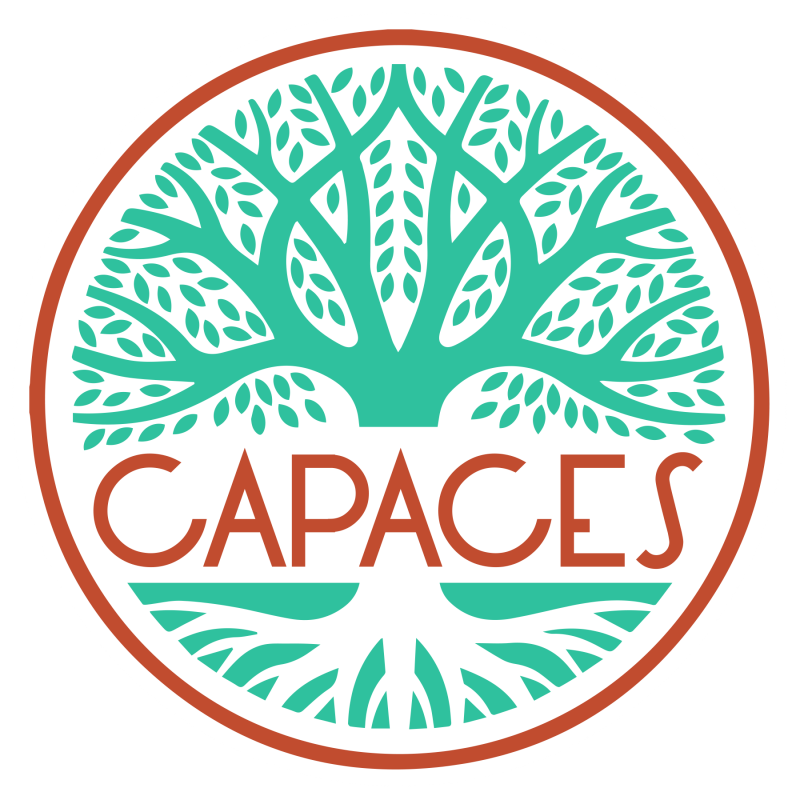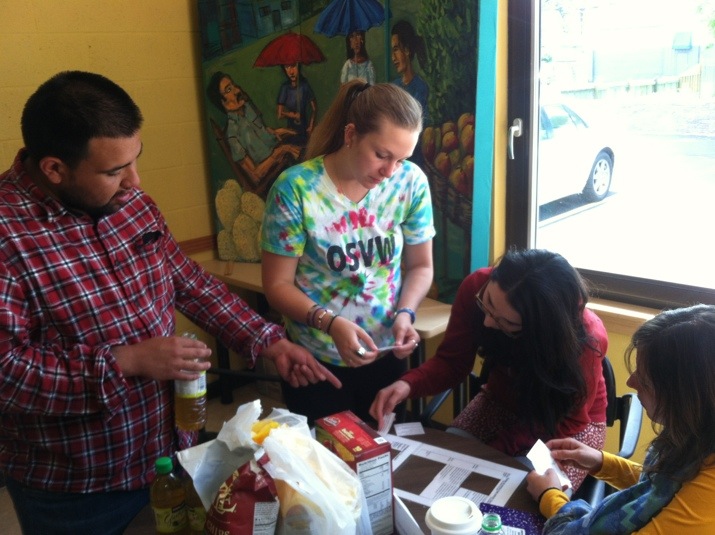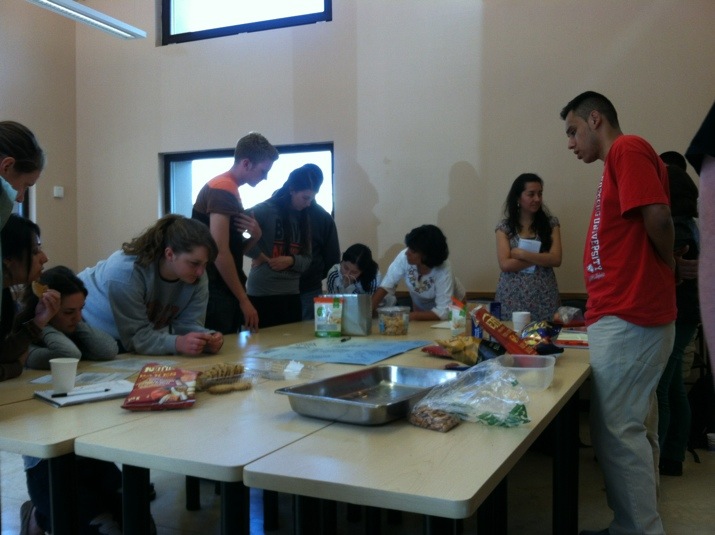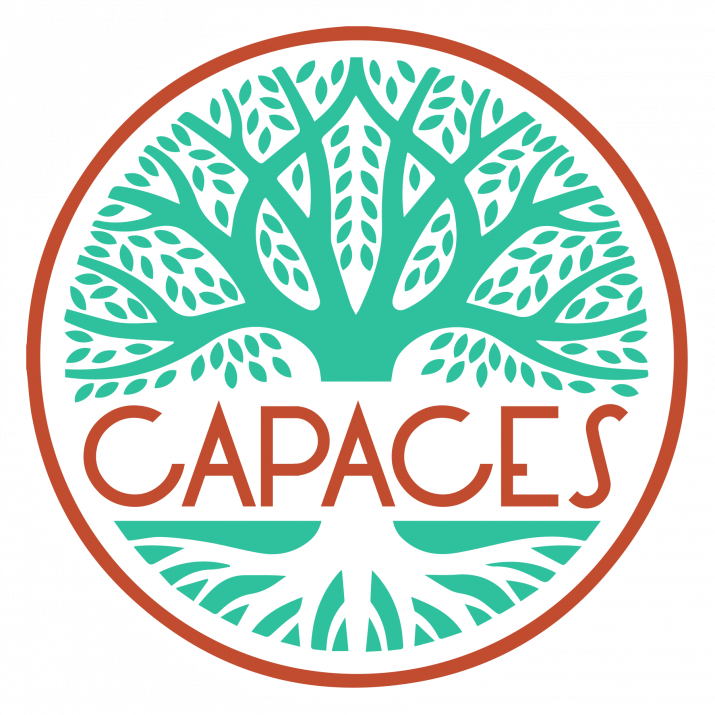Ever entered a lecture hall anticipating dialogue, a sharing of ideas, values and experience only to receive… well, a lecture? This form of education is common in many universities across the country, which explains why this past April many OSU students were in for a surprise as they arrived in Woodburn to participate (or take a test drive) in CAPACES 101, one of the CAPACES Leadership Institute’s (CLI) popular education courses.
The partnership between the CLI and OSU’s Advanced Spanish Coordinated Studies Program led by Loren Chavarria included five Tuesday sessions in the CLI’s facility in Woodburn and volunteer opportunities with CLI’s youth program TURNO, Radio Movimiento, and FHDC to name a few.
Popular education, often described as education for critical consciousness, has Latin America traditions that often targeted low-income and marginalized communities. The concept: rather than have top-down teaching such as teacher-pupil, we have peer-to-peer teaching initiated by a facilitator. The premise: that no matter what occupation, income bracket, and level of formal education, everyone can participate and contribute by drawing upon their life experience or through engaging activities described as dinimicas. CAPACES 101, a five-session, ten hour course covers:
-
CAPACES 101 Introduction, which provides an overview of the CAPACES 101 format based on popular education, which utilizes a facilitator, who leads discussion, draws from the audience’s experiences.
-
Historias y Logros or our History and Struggle, which provides a brief description of the history of the movement, from PCUN’s (Oregon farmworker union) humble beginnings to the development of other organizations.
-
Valores e Ideas Claves del Movimiento or Values and Ideas of the Movement, which provides the key values and ideas of the CAPACES movement and identifying what they mean to us and their importance.
-
Los “Ismos” or the “Isms”, which aims to uncover our own prejudices and offer tools to analyze the different isms and phobias such as: racism, institutional racism, sexism (machismo), and homophobia.
-
Riquezas y Convenios Colectivos or Wealth and Collective Bargaining, which covers the concepts of wealth, who possesses it, and uncovering our own personal assumptions. The class also covers the importance of Collective Bargaining in relationship to the farmworker movement.
“This course and experience was all around wonderful. It met our program’s objectives of our five C’s (Communication, Cultures, Connections, Comparisons, and Communities) as well as the additional area of
Consciousness.” Said OSU faculty member Loren Chavarria
“It was great for the CLI staff to be able to connect the formal education with the world of popular education. I think everyone had fun and learned a lot from one another.” Shared Executive Director Laura Isiordia.




